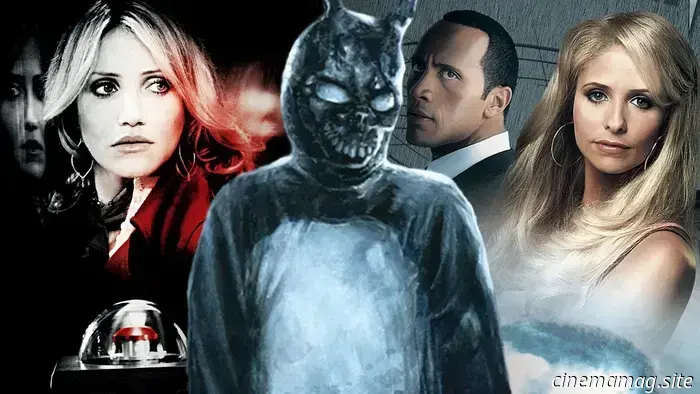
The Ascendancy and Frustrating Vanishing of Director Richard Kelly
Simon Thompson examines the ascent and disappointing decline of filmmaker Richard Kelly…
The contradiction faced by a talented independent film director is that when their work is perceived as intriguing and distinctive, mainstream Hollywood eventually attempts to assimilate it into a more conventional mold. Kelly (and to some degree, his contemporary Shane Carruth) find themselves in a peculiar filmmaking limbo—too young to belong to the early wave of independents (such as Stephen Soderbergh, John Sallis, Sam Raimi, the Coens, and Spike Lee), and not forging a Hollywood path via music videos like David Fincher and Jonathan Glazer, nor joining the ranks of the video store generation alongside figures like Quentin Tarantino, Paul Thomas Anderson, Edgar Wright, and Christopher Nolan.
For a filmmaker as resolutely original, intellectual, and skilled as Kelly, having only produced three features over the two decades of his career is a stark indictment of Hollywood. While Kelly still possesses many stories to share, the most perplexing tale of all isn’t from an original script but rather the Icarus-like rise and fall narrative of his own career.
Richard Kelly was born in 1975 in Midlothian, Virginia. His mother, Lane, was a schoolteacher, and his father, Ellis, was a NASA technician who contributed to the Mars Viking Lander program, helping to develop the camera that captured the first images of Mars.
A bright and inquisitive student, Kelly aspired to be a political cartoonist or a filmmaker. Ultimately, filmmaking prevailed when he won a scholarship to the USC School of Cinema and Television at age 18. Inspired by a diverse array of filmmakers and writers including Terry Gilliam, Alfred Hitchcock, Sidney Lumet, Stanley Kubrick, David Lynch, Robert Aldrich, Kurt Vonnegut, Raymond Chandler, Philip K. Dick, and Richard Matheson, Kelly began crafting short films at USC and graduated at 22 in 1997.
Upon graduating, Kelly immediately began brainstorming script ideas, but one in particular captivated him. Enchanted by the concept of a jet engine unexpectedly landing on a house, he decided to construct an entire narrative around it. This seemingly simple idea evolved into the film that ultimately defined his career: Donnie Darko.
Set in October 1988, Donnie Darko follows the story of Donnie (Jake Gyllenhaal), a teenager with schizophrenia and sleepwalking issues living in suburban Virginia. After narrowly surviving a freak incident where a jet engine crashes into his bedroom, Donnie begins experiencing visions involving a tall figure in a bunny costume named Frank (Jim Duval), who is the only one able to warn him that the world will end in precisely 28 days, 6 hours, 42 minutes, and 12 seconds.
As Donnie becomes increasingly alienated by the adults around him—especially fraudulent life coach Jim Cunningham (Patrick Swayze)—he seeks comfort in a small circle of friends and a budding romance with transfer student Gretchen (Jena Malone). All the while, as he navigates the challenges of adolescence, his awareness of the world’s impending doom grows more pronounced until the film’s climax.
While pitching his script around Hollywood, Kelly insisted on directing the screenplay himself, leading to a protracted two-year struggle to find a studio willing to produce Donnie Darko. Throughout numerous meetings, the script garnered a reputation as one everyone in Hollywood wanted to make, yet they were too apprehensive about its unconventional and cerebral essence diminishing its commercial appeal.
Described as a blend of The Catcher In The Rye and Harvey, with a nod to 2001: A Space Odyssey, the script’s combination of surreal coming-of-age drama and hard science fiction posed a challenging sell for marketers.
Finally, in 2000, after two years of stalemate, the film secured a budget of $4.5 million and a studio deal with Flower Films, thanks to co-owner Drew Barrymore's admiration for the script (she ultimately appeared in a supporting role). The film also had a distributor in Newmarket Films, a subsidiary of the risk-taking independent giant New Line.
With Barrymore on board, Kelly sought a young lead to portray the titular character. Vince Vaughn sadly declined because of his age, and discussions with Mark Wahlberg fell apart over Wahlberg's desire to portray Donnie with a lisp. However, after sifting through dozens of candidates, Kelly found his actor in Jason Schwartzman, who had just gained recognition for his role in Wes Anderson’s Rushmore.
Ironically, a scheduling conflict that kept Schwartzman from participating in the film turned out to be a fortunate twist of fate for Kelly. While watching an independent film called October Sky, he discovered Jake Gyllenhaal, whose talent and screen presence stood out even among esteemed actors like Laura Dern and Chris Cooper. This realization led Kelly to believe he had found the ideal actor to embody Donnie.
Despite completing the film in just 28















Other articles
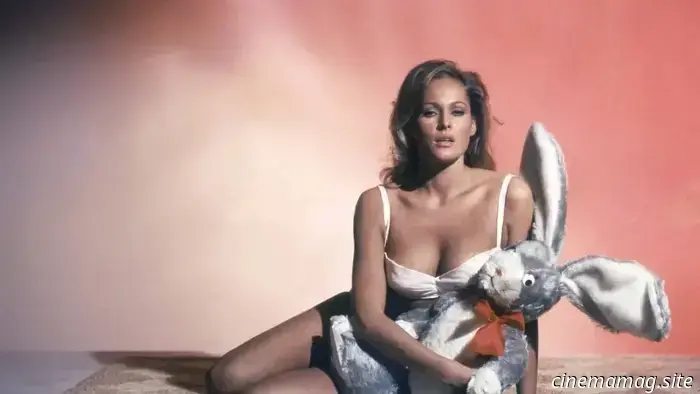 Ursula Andress in Dr. No: 12 Behind-the-Scenes Images of Bond Girl 001
In Dr. No, Ursula Andress set the benchmark for Bond girls in all subsequent James Bond films. Here are 13 behind-the-scenes photos of her on the set of the inaugural 007 movie.
Ursula Andress in Dr. No: 12 Behind-the-Scenes Images of Bond Girl 001
In Dr. No, Ursula Andress set the benchmark for Bond girls in all subsequent James Bond films. Here are 13 behind-the-scenes photos of her on the set of the inaugural 007 movie.
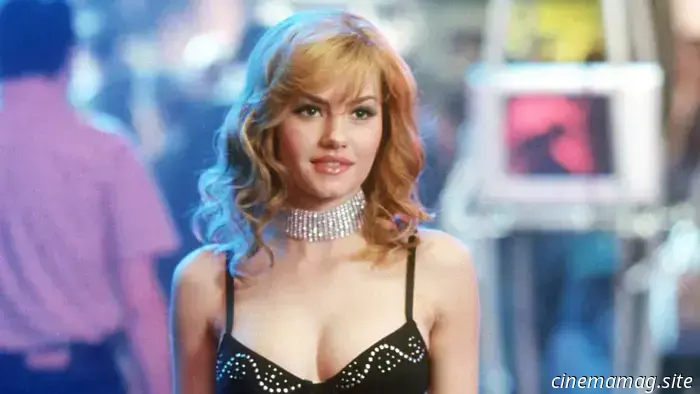
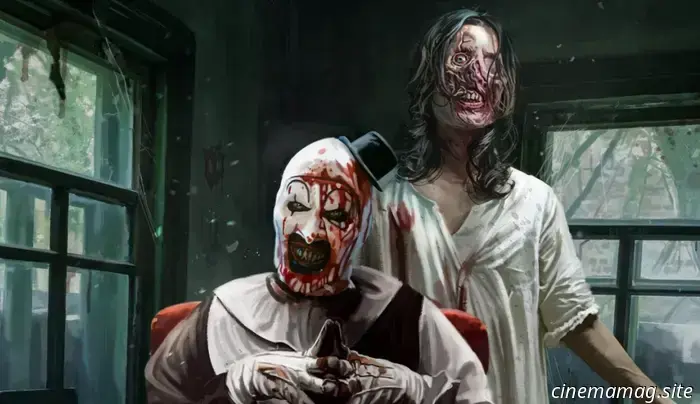 The demo for Terrifier: The ARTcade Game is now available on PlayStation, Switch, and PC.
SelectaPlay and the developer Relevo have launched a playable demo of the forthcoming Terrifier: The ARTcade Game on PC through Steam, as well as on PlayStation and Nintendo Switch. This demo offers horror enthusiasts the opportunity to experience a retro-inspired bloodbath that blends arcade classics with intense horror elements. Check out the new trailer below… Get your cleavers ready and prepare to dive in!
The demo for Terrifier: The ARTcade Game is now available on PlayStation, Switch, and PC.
SelectaPlay and the developer Relevo have launched a playable demo of the forthcoming Terrifier: The ARTcade Game on PC through Steam, as well as on PlayStation and Nintendo Switch. This demo offers horror enthusiasts the opportunity to experience a retro-inspired bloodbath that blends arcade classics with intense horror elements. Check out the new trailer below… Get your cleavers ready and prepare to dive in!
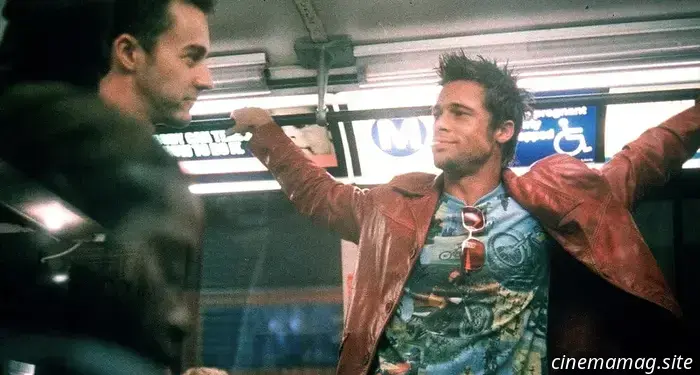 Movies that Failed at the Box Office Yet Developed a Cult Following - MovieMaker Magazine
Have you ever considered how many cult films actually failed at the box office? Nowadays, we view them with respect, recite their dialogue, and draw inspiration from them.
Movies that Failed at the Box Office Yet Developed a Cult Following - MovieMaker Magazine
Have you ever considered how many cult films actually failed at the box office? Nowadays, we view them with respect, recite their dialogue, and draw inspiration from them.
The Ascendancy and Frustrating Vanishing of Director Richard Kelly
Simon Thompson examines the ascent and unfortunate decline of filmmaker Richard Kelly. The irony of being a skilled independent film director is that if your creations are recognized as captivating and distinct, mainstream Hollywood will eventually attempt to assimilate them into the standard mold. Kelly, along with his peer Shane [...]
